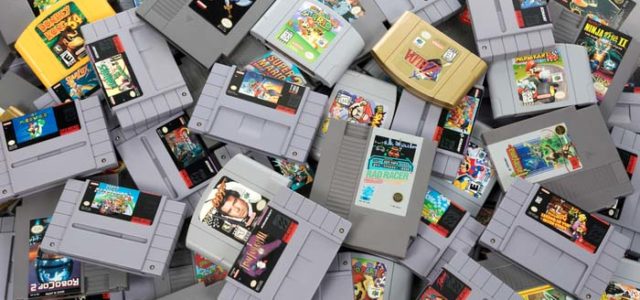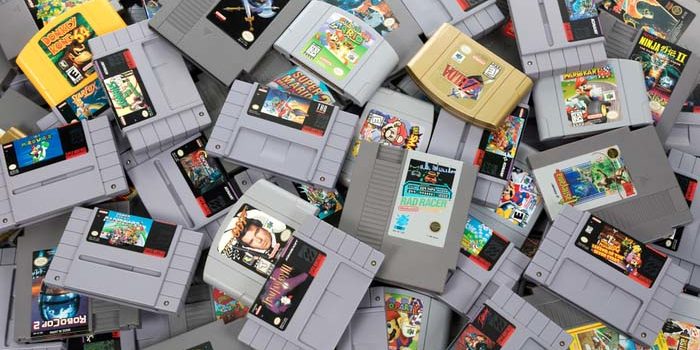

Nintendo Striking Down ROM Sites, Sparking Conversation about Preservation
ElectronicsEntertainmentNews August 23, 2018 Cameron 0

In the most recent string of high-profile lawsuits, Nintendo has struck down numerous popular ROM sites that were operating illegally. Under the letter of the law, distributing video games, even thirty-year-old ones, is illegal if you don’t have the express consent of the copyright holder. However, seeing Nintendo take such a hardline stance on such sites is a bit quaint, as it is so reminiscent of the Napster case from the early 2000’s. As many other observers have noted: wouldn’t it be easier to meet consumers where they are, rather than to try and get them to come to you?
Nintendo, ROM Sites and Piracy
Nintendo is a big name when it comes to retro games. However, they are hardly the only kid on the block with a deep backlog of classic games. It just so happens that they are one of the longest-lived. Not to mention, one of the few that exists in mostly the same capacity that it did in the 80’s. As such, Nintendo’s ferocity in terms of legal defense of their older games is unmatched. While many video game enthusiasts using emulation to hunt down obscure games like Little Samson, Nintendo is adamantly against any and all emulation of their consoles.
It is supremely ironic, then, that two of Nintendo’s most popular products in recent memory were the NES and SNES Classic systems. These systems build heavily upon the foundation laid by the internet ROM community. They also appeal to fans of classic gaming with a nostalgia for the early days of Nintendo’s systems. As it stands, Nintendo offers very few legal avenues through which to play the vast majority of its backlog library. However, the Classic series of consoles is a passable stopgap.
The Problem
The problem with the current legal distribution method of older games is that it is entirely up to the copyright holder whether or not the game will even be made available. While ROM emulation of older titles is comprehensive and nearly every game exists somewhere on the internet, there are comparatively few options to play Nintendo’s backlog legally.
The most common way, prior to the release of the Switch, was through the Virtual Console service. Virtual Console allowed Nintendo systems to act as emulators for older games. For instance, if one wished to play Super Mario Bros, they could purchase it for $10 or so from the online shop. Then, they owned a digital version of the software and could play it whenever they liked.
However, the issue with this is that Nintendo was very slow-paced when it came to Virtual Console releases. Fans would clamor for re-releases of older games, but they were glacially slow to roll them out. By the time a system would have a sizable backlog, it would be the end of the console cycle. Then, upon grabbing a new system, players would have to purchase their library of old games all over again. That is, of course, assuming Nintendo ported the games they wanted forward.
The Solution
It seems unlikely either side will find a satisfactory middle ground any time soon. ROMs will continue to pop up on the internet, despite Nintendo’s best efforts. Likewise, Nintendo will continue to drip-feed its fans with re-releases of older games to maximize profits. In the meantime, projects like the Classic series seem to be the best middle ground. We sincerely hope to see more projects like it from Nintendo, in the interest of preserving the history of gaming.











No comments so far.
Be first to leave comment below.